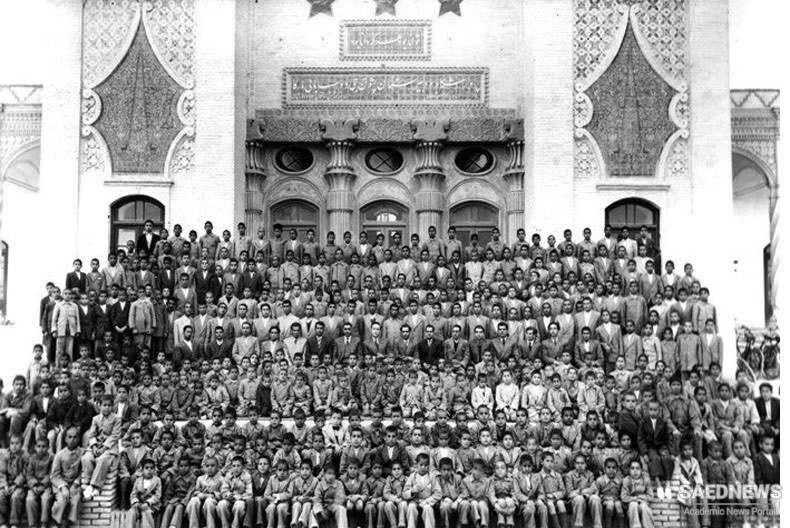Furthermore some of the students did not return or – even worse – returned with ideas that were condemnable in the eyes of the ruling elites. Thus, to realize the dream of a renaissance of the nation and a self-reliant and self-sufficient Iran, the influence of foreigners was to be curtailed as far as possible. The Dar al-Fonun was founded in 1851 and the new institutions of higher education were to play a prominent role in this process: they should be responsible for training a new generation of not only domestic, but also domestically instructed specialists.
In addition to the secularization of the educational system this nationalistic element was obviously the main reason why Reza Shah gave his consent to the establishment of the university – Reza Shah, who originated from a very ordinary family, had himself had only a very modest education and is alleged to have detested intellectuals. I do not believe that the education of the people – as Hekmat had put it in his words of thanks after the ratification of the law by the Majles – was really as close to Reza Shah’s heart as the education of his own children.
But there is no doubt that he approved of higher education in Iran – as Hekmat continued to state – because students abroad did not receive a “national” education (tahsil-e melli). On several occasions the shah and his heir emphasized that patriotism is the highest precept and service to the country the foremost duty of the new university graduates.
The shah seems to have understood instinctively that education was not only an important basis for economic development, but also a basic component of nation building. He also realized that he needed the western-educated specialists (whom he otherwise feared and fought as sources of foreign influence and possible dissidents or spies) together with the graduates from the new University of Tehran in order to implement the measures of modernization that served the nation’s independence.
The circumstances of his takeover had shown clearly the importance of the nationalist criterion for the legitimacy of Reza Shah’s rule.34 After the overthrow of Sepahdar’s government he had promised to lead Iran into national independence and to undertake reforms which would put an end to foreign interference in Iran.35 Reza Shah was the strong man many had waited for, the one who established order and bestowed new self-esteem on the country, necessary to accomplish the reforms many had hoped for for a long time. In his draft Sadiq had identified the education of future national leaders as the most important task of the university.
In the Majles debate many deputies noticed with particular satisfaction that in future there would be no need to send students abroad, which would make the country more independent. The vice dean of the Faculty of Medicine stressed that the moral and mental education of the students had to be the primary target of the university so that they would become scholars loyal to the shah, loving their country, and conscious of their duty towards society.
After decades of anarchism and civil war many statesmen favored a strong government which could restore the nation’s grandeur as the solution to Iran’s problems. A large amount of national pride united academics and politicians, intellectuals and pragmatists and caused them to collaborate with a shah who in many respects may not have corresponded with their ideals of liberty and democracy. Men like Firuz Mirza Nosrat al-Dowleh, ‘Ali Akbar Davar and ‘Abdolhoseyn Teymurtash, who were educated in the West and had an unshakable belief in westernization, finally fell victim to the power that they had helped to establish themselves.


 Hekmat Becomes Minister of Education
Hekmat Becomes Minister of Education














































